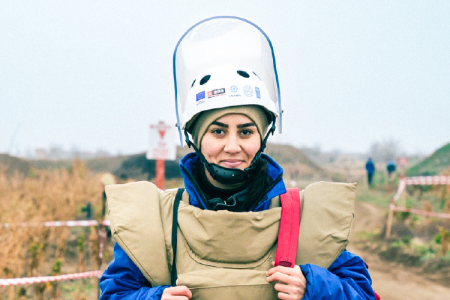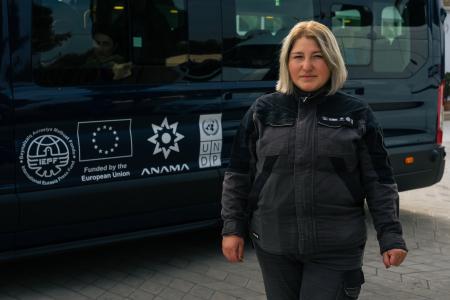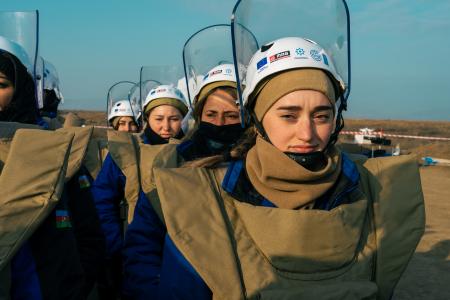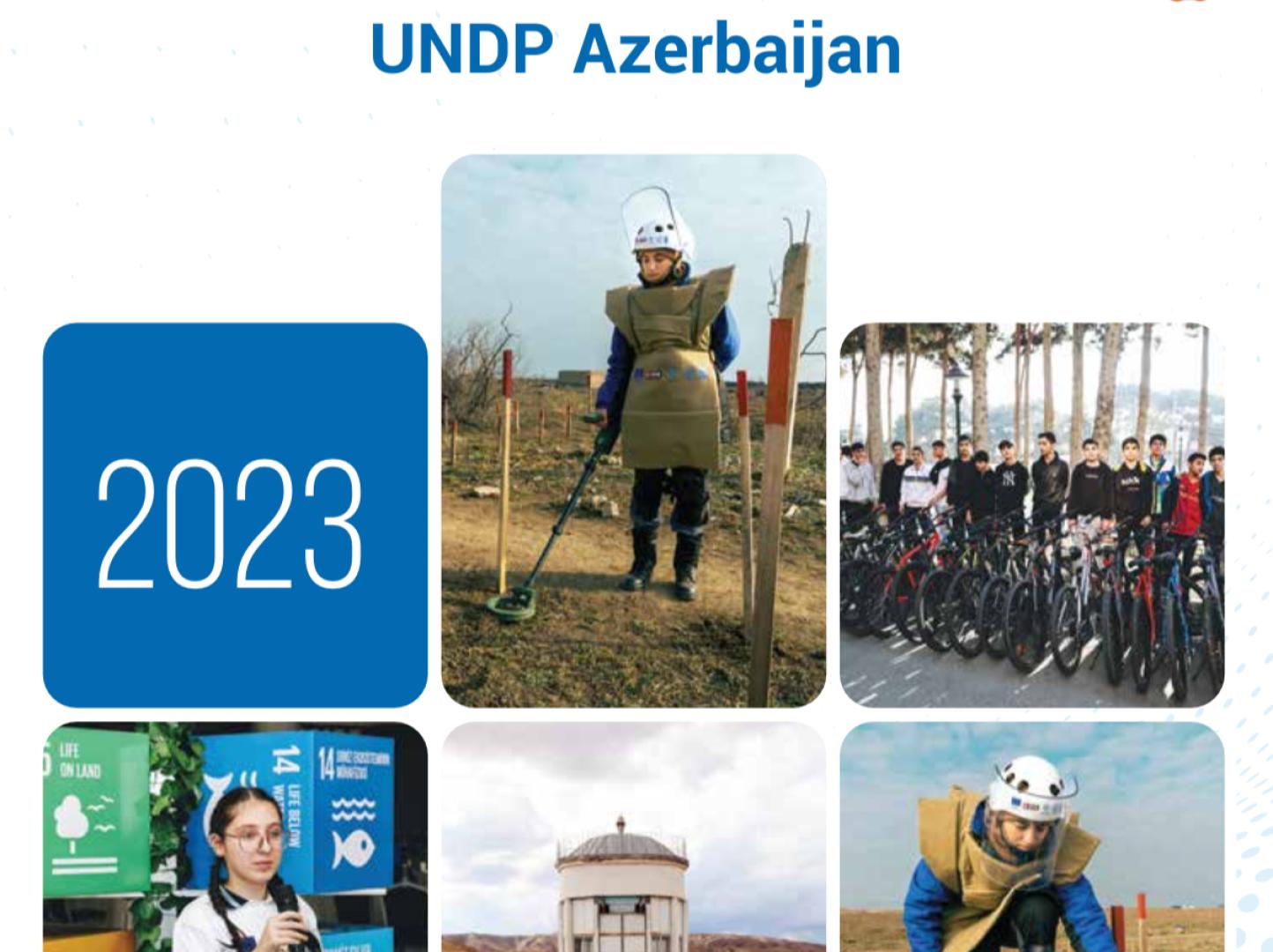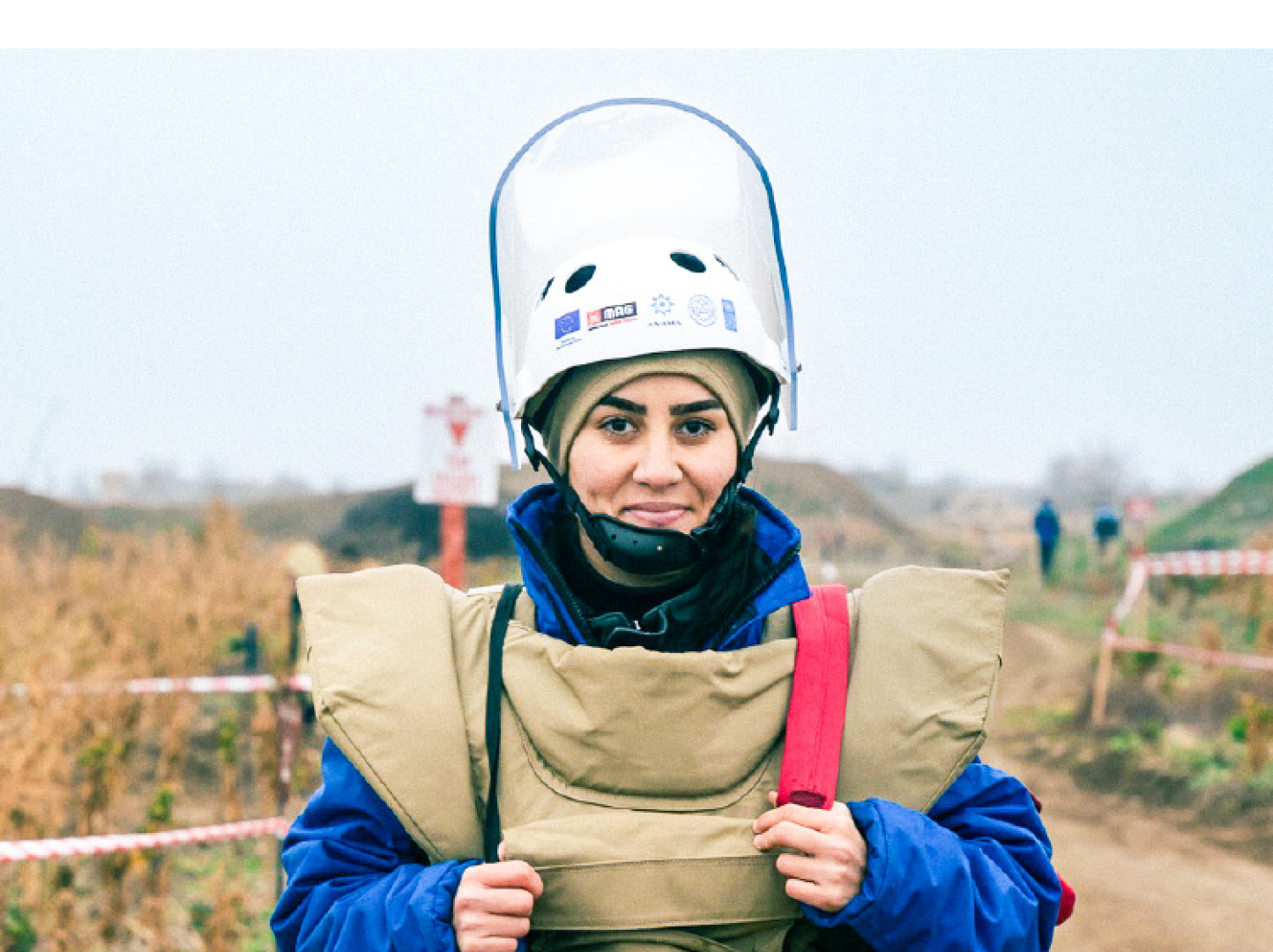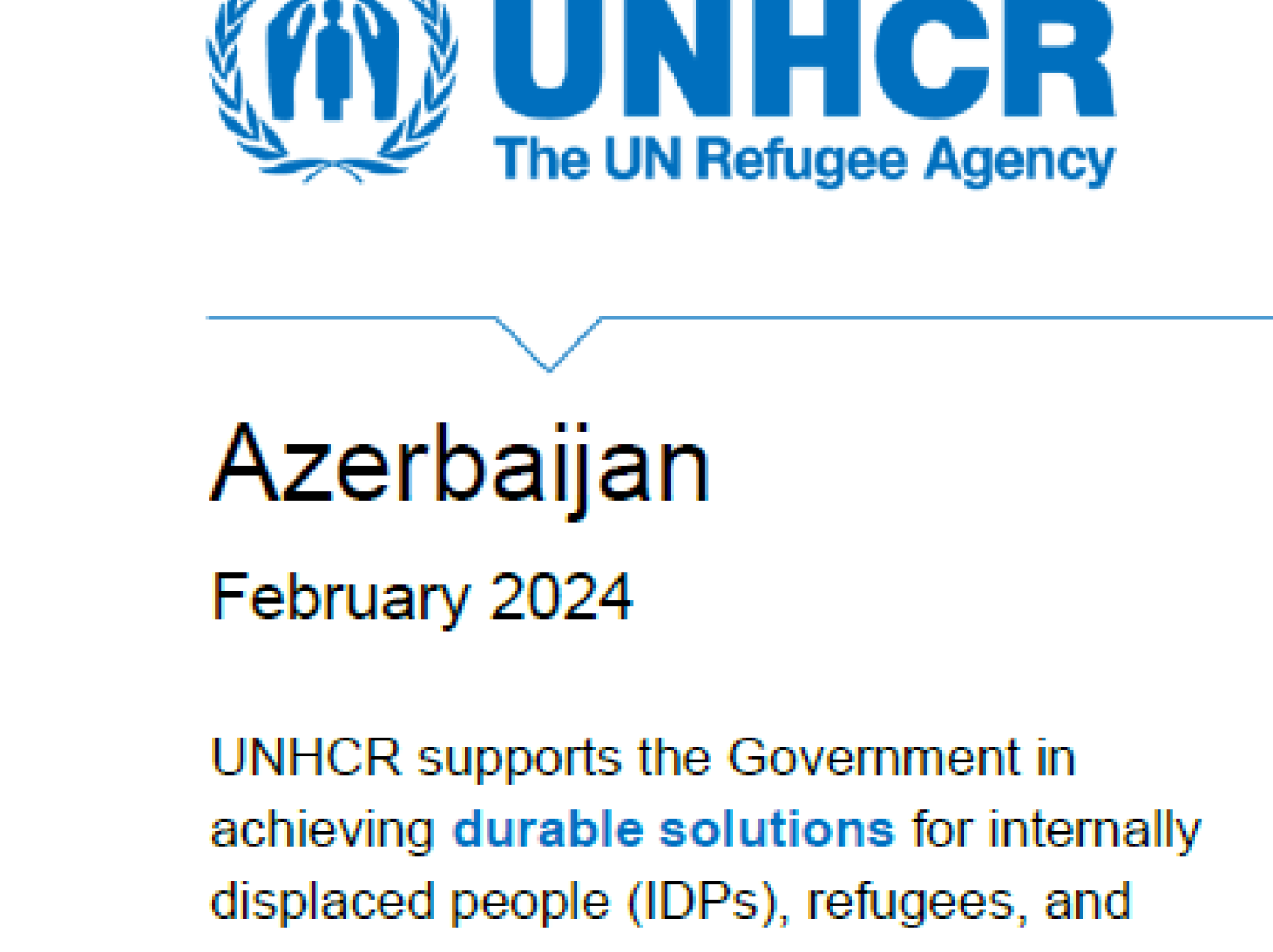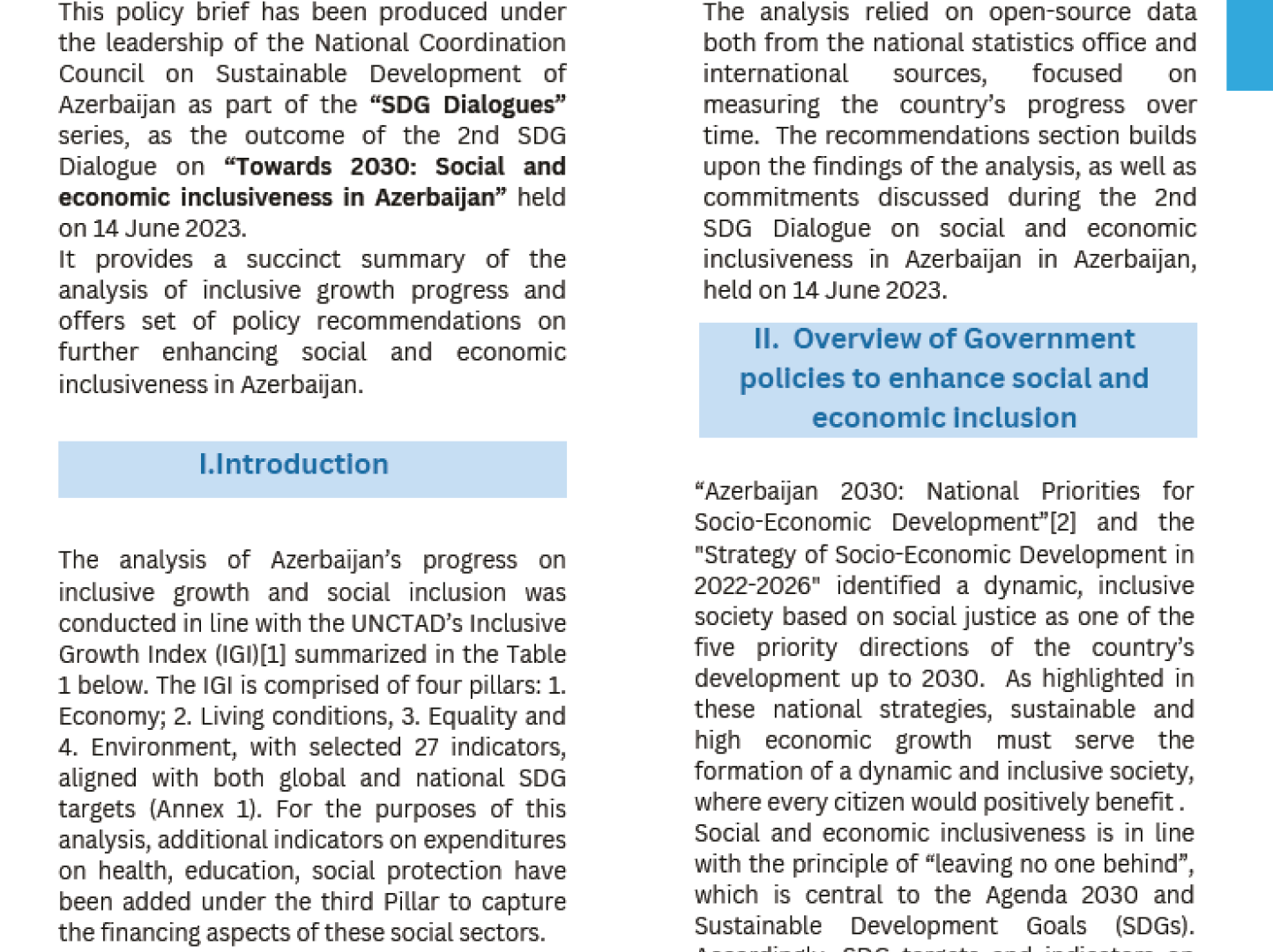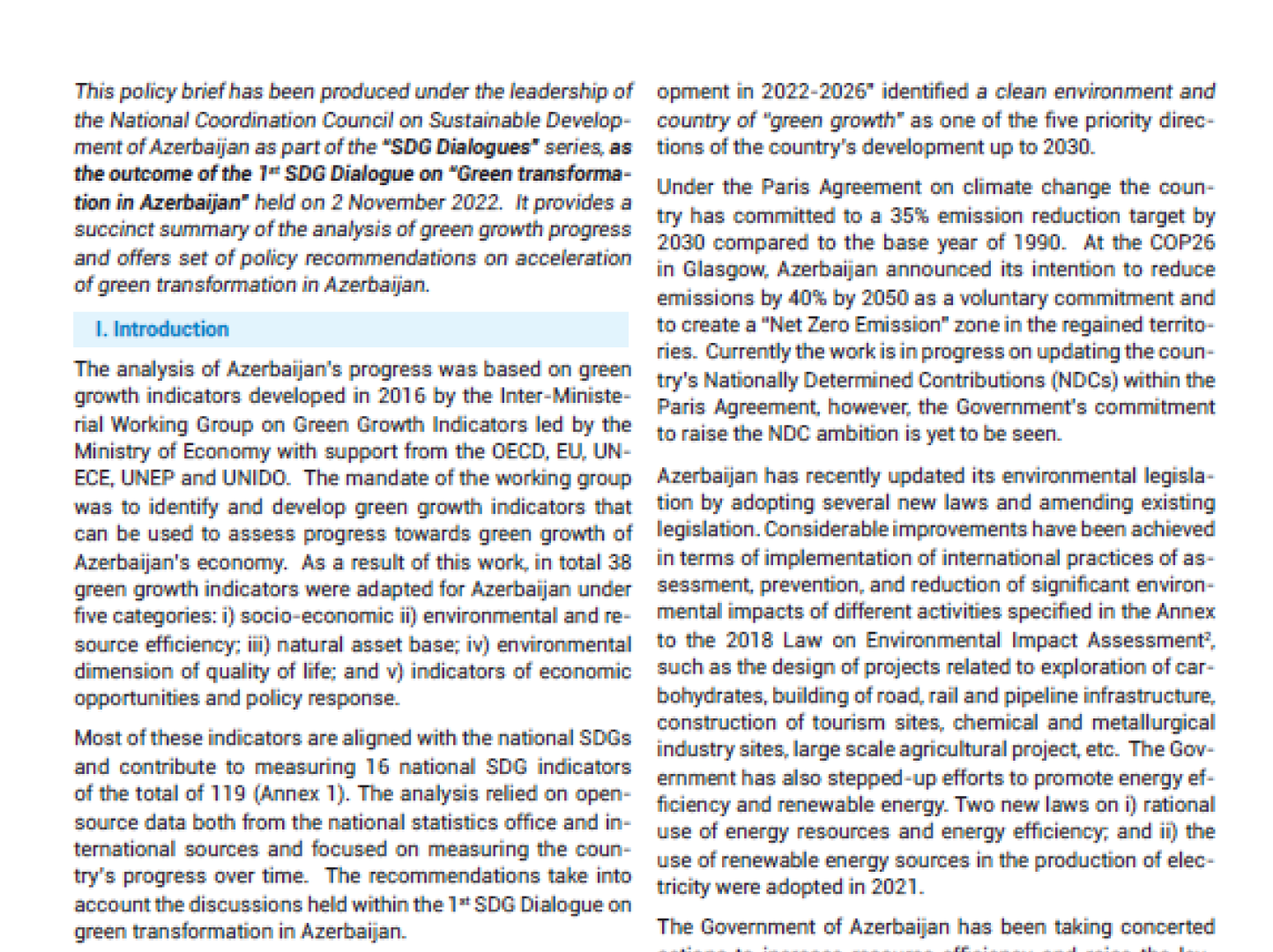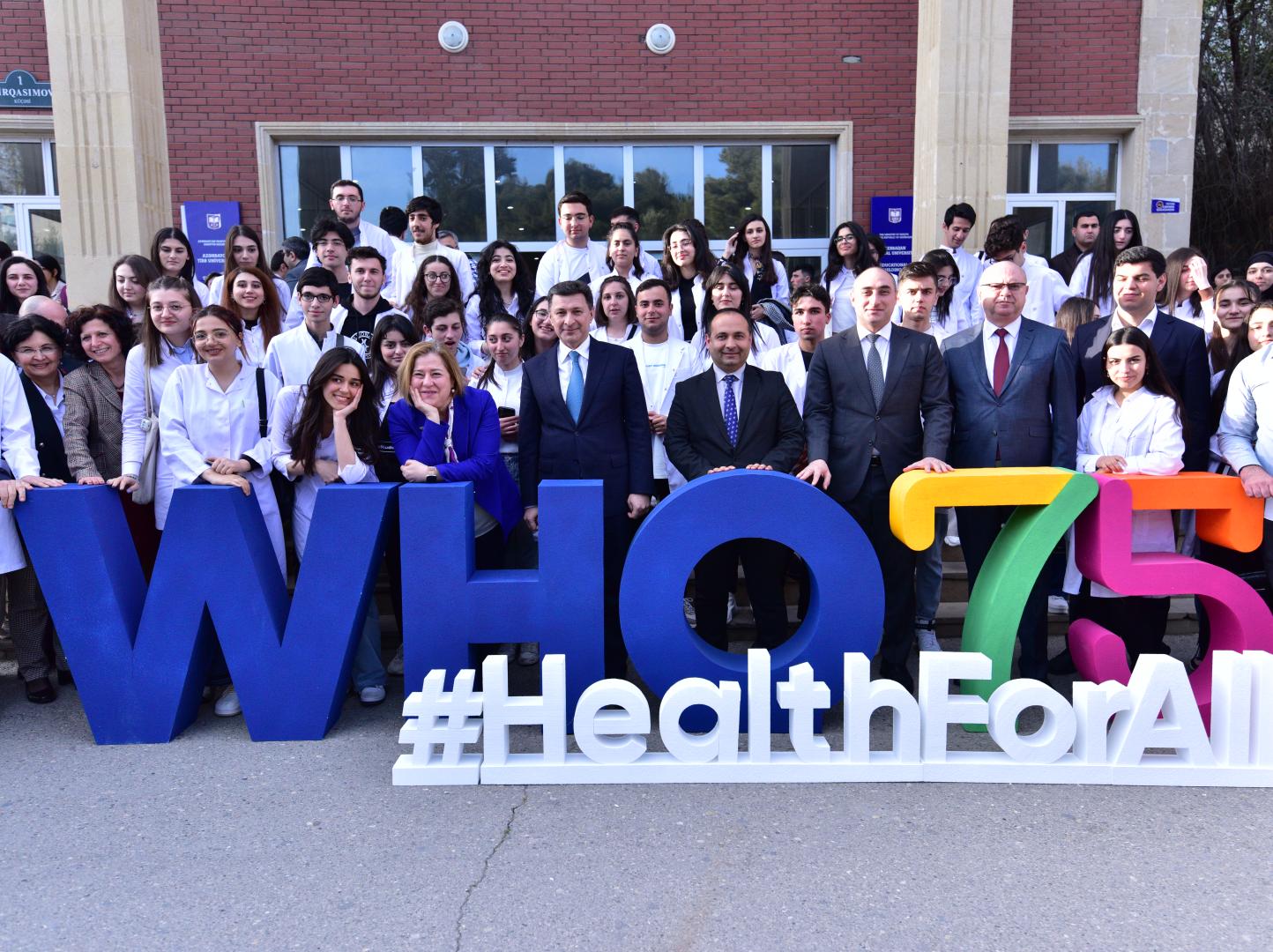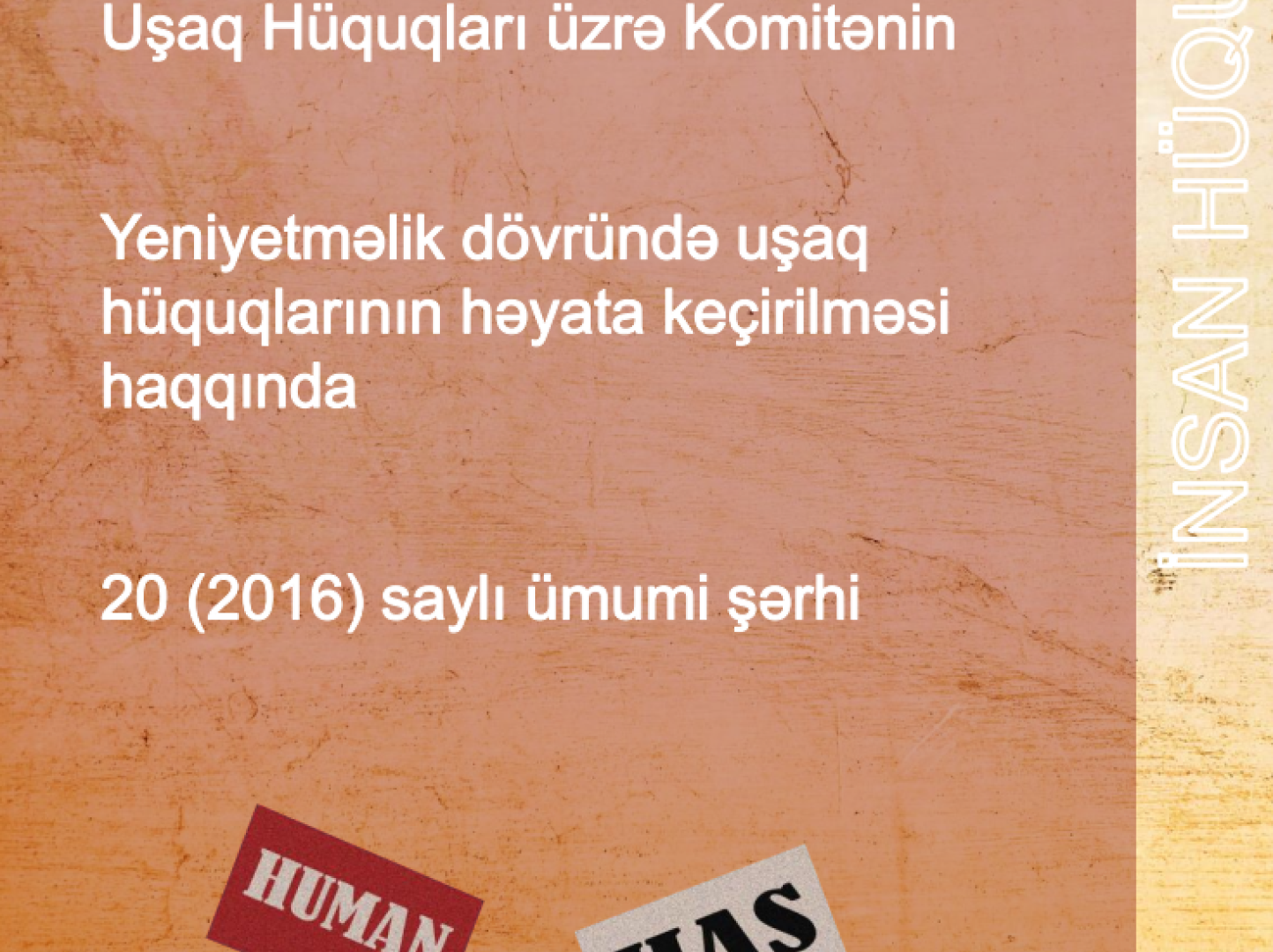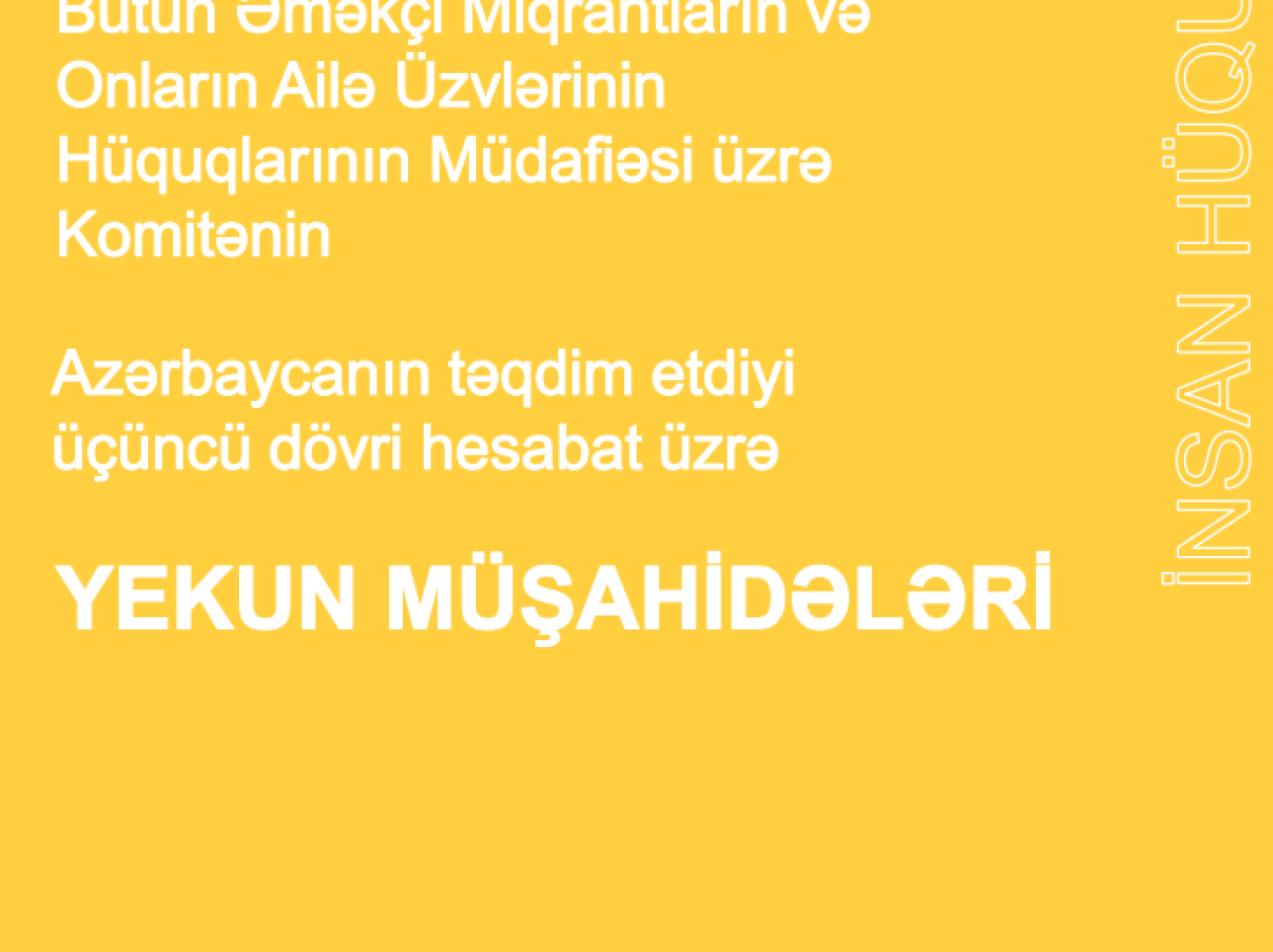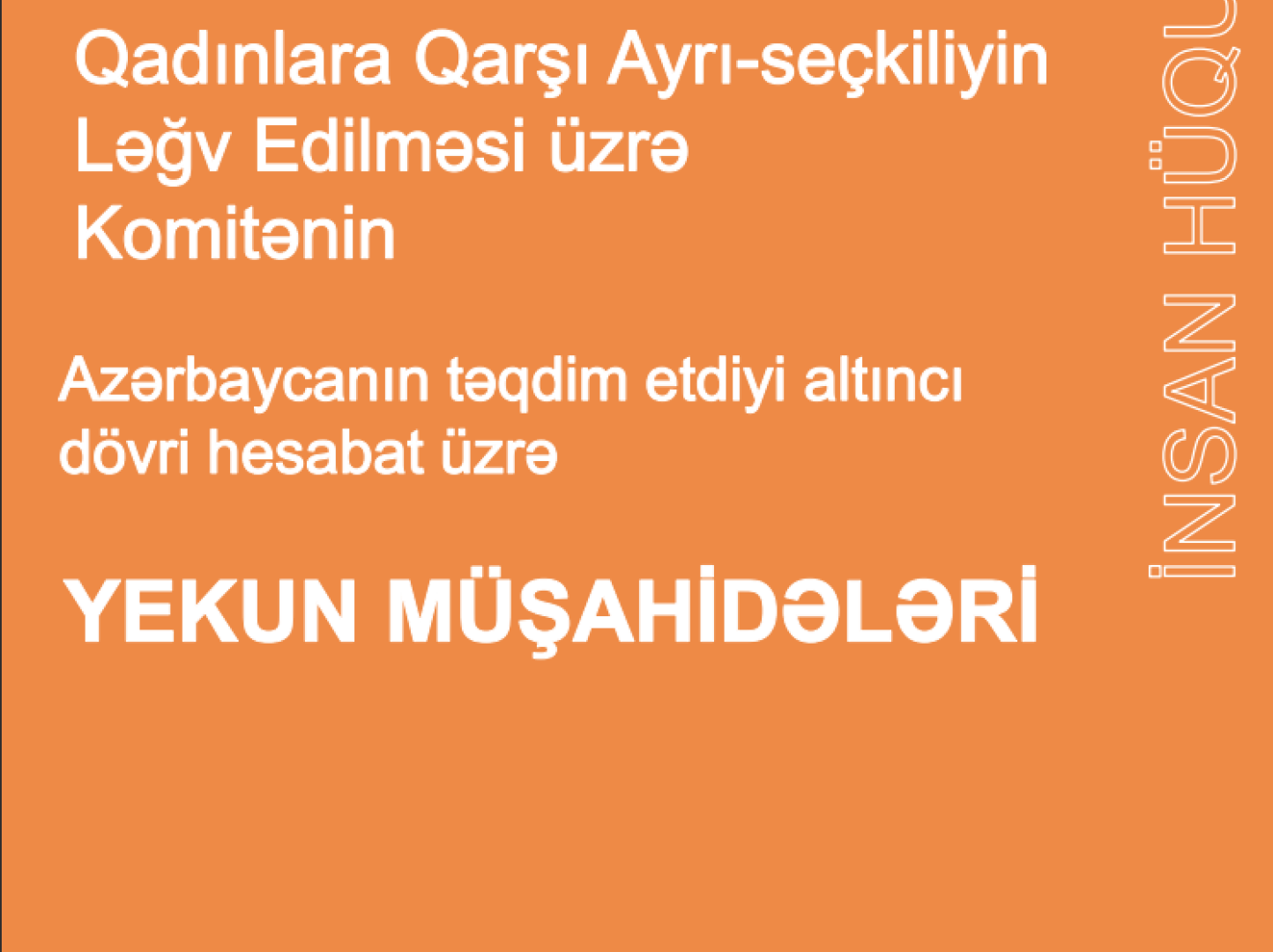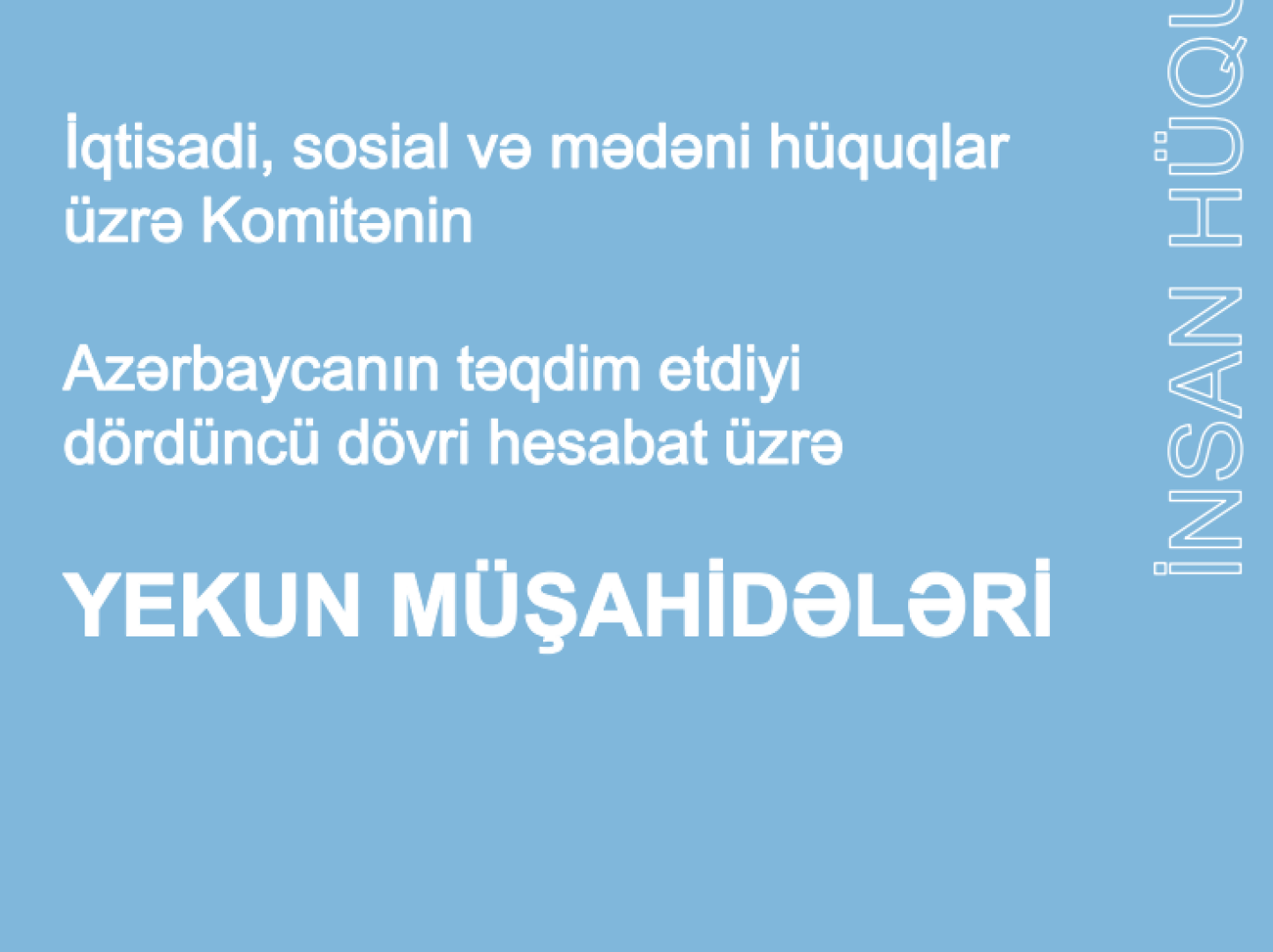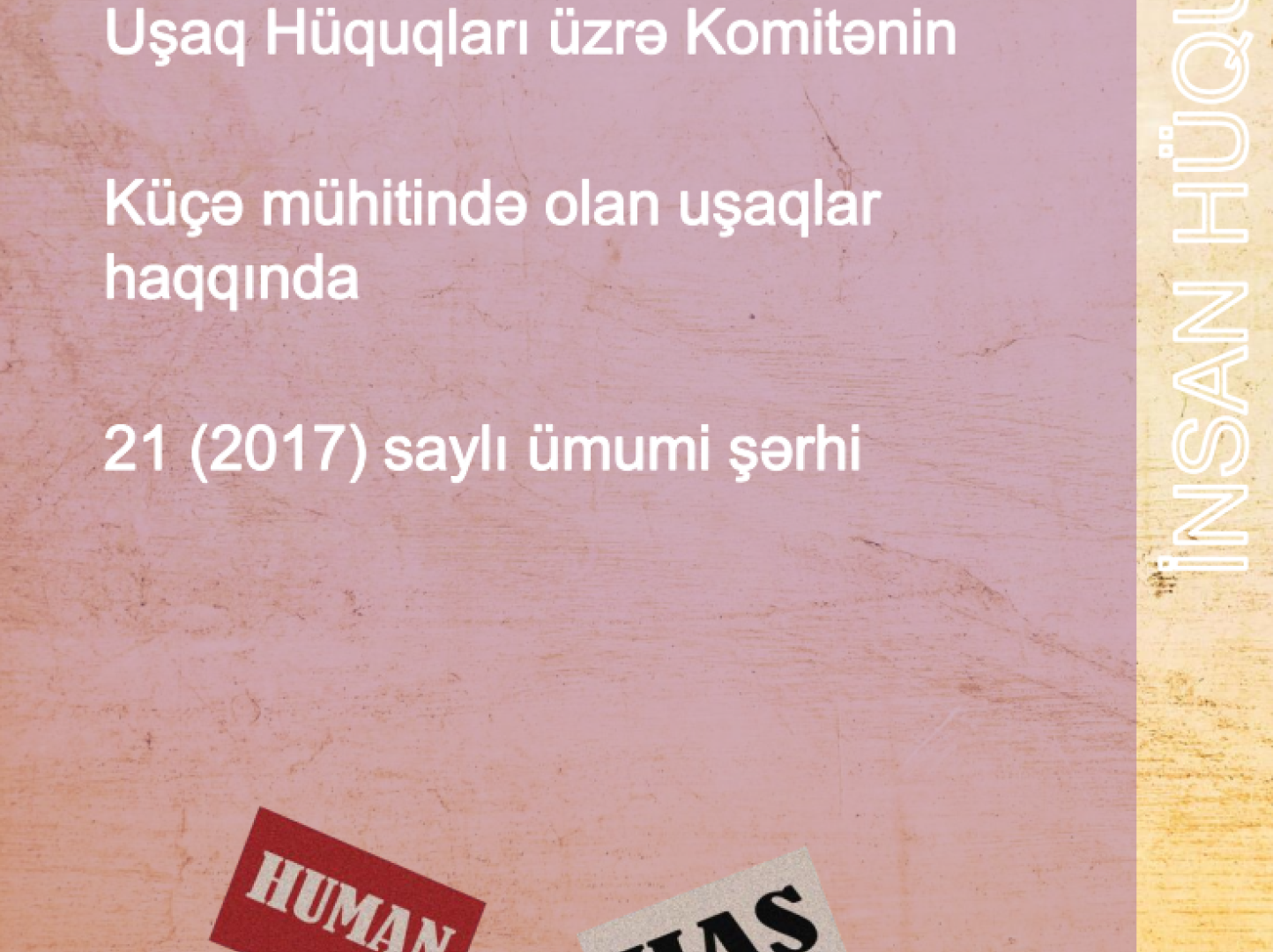Latest
Press Release
15 July 2024
Ahead of COP29, UNDP and the Government of Azerbaijan underline the need to scale up climate action
Learn more
Press Release
04 July 2024
ESG SUMMIT CONTINUES WITH PRACTICAL WORKSHOPS ON ESG INTEGRATION
Learn more
Press Release
04 July 2024
United Nations and PwC Azerbaijan Kick Off ESG Summit: Public-Private Partnerships for Sustainable Development
Learn more
Latest
The Sustainable Development Goals in Azerbaijan
Over the last eight years, Azerbaijan has demonstrated its firm commitment towards achieving the 2030 Agenda. The President of the Republic of Azerbaijan issued the Decree in 2016, to establish the National Coordination Council for Sustainable Development - a key partner for the United Nations to channel its support to the Government of Azerbaijan since then.
Azerbaijan has been one of the first countries to undertake a MAPS mission (Mainstreaming, Acceleration and Policy Support for the 2030 Agenda) which outlined concrete policy and programming steps that could be taken to accelerate the goals nationally, the experience which was presented at the 2018 Baku Forum on Sustainable Development. This regional event also marked the adoption of the Baku Principles which established provisions for the integration of SDGs and acceleration of their implementation.
With UN support, the National Information Portal on SDGs was launched, which introduces an interactive dashboard, collects consolidated data, tracks and monitors progress towards the SDGs in real-time. UN provides continuous support to strengthen national statistical capacities to produce quality data while focusing on disaggregation to Leave No One Behind.
United Nations also makes special efforts to engage different groups including the private sector, media, parliamentarians, and the public, among others, in promoting the Goals.
Publication
10 May 2024
UN Azerbaijan - Annual Results Report 2023
We are pleased to share with you the UN Country Results Report for 2023. The report highlights the last year's results of our joint efforts with the Government, civil society organizations, academia, the private sector, and the achievements in in the implementation of the 2030 Agenda for Sustainable Development.
1 of 4

Press Release
09 May 2024
FAO Azerbaijan held a meeting with Young Leaders
On May 7, 2024, a meeting with 'Young Leaders' took place at the Partnership and Liaison office of the UN Food and Agriculture Organization (FAO) in Azerbaijan. The main purpose of the meeting was to discuss climate change, Sustainable Development Goals, challenges, and opportunities for future cooperation, and to exchange knowledge on effective directions to act upon. At the organized meeting, Mrs. Adila Aliyeva, Manager of Work with Volunteers at COP29, Mrs. Anastasia Lavrina, CBC TV presenter and expert commentator, Mr. Azer Aliyev, General Director of the Youth Development and Career Center, and Mr. Roman Gojayev, International youth expert and Gender Hub Azerbaijan co-founder and executive director, participated. The youth representatives made a presentation informing the FAO team about the institution they represent and the activities they are currently performing. During the meeting, Mr. Nasar Hayat, the representative of FAO in Azerbaijan, made an opening speech. After greeting the youth, he informed them about the activities of FAO related to youth. In his speech, Mr. Hayat said, "FAO understands that the key to the future lies in the hands of the next generation and we are optimistic about the future despite the challenges ahead."In turn, FAO experts exchanged ideas with the youth about the work that has been implemented and future prospects. At the end of the meeting, it was decided to continue the cooperation in the directions mentioned during the discussion.
1 of 4
Press Release
09 May 2024
IOM Azerbaijan hosted a closing ceremony for its "Integrated Rural Development for Internally Displaced Communities in Azerbaijan through Revitalization of Kahriz Water Supply System" project
Baku – On 30 April 2024, IOM Azerbaijan hosted a closing ceremony for its “Integrated Rural Development for Internally Displaced Persons (IDP) Communities in Azerbaijan through Revitalization of the Kahriz Water Supply System” project, funded by Korea’s International Cooperation Agency (KOICA).In his welcoming remarks, Mr Amr Taha, IOM Chief of Mission a.i. expressed appreciation to all government and non-government partners for the support over the past 25 years which allowed for the rehabilitation of 200 Kahrizes across Azerbaijan, -33 of which under this project. UN Resident Coordinator, Ms Vladanka Andreeva highlighted the importance of this initiatives for downstream countries, adding it contributes to the UN’s cooperation framework 2021-25 and that Kahriz rehabilitation is referenced as a good practice in UN 2.0 map, as “innovation through recovery”. Ms Youkyoung Hwang, Representative of the Korean Embassy expressed her gratitude to KOICA, IOM, and all partners, including the significant contributions from various ministries and agencies. During her speech she also mentioned that “By rejuvenating the Kahriz water system, we have provided IDP communities not only with access to clean and sustainable water sources but have also empowered these communities towards self-sustainability and economic independence”. Government counterparts also underscored the importance of Kahriz rehabilitation not only as a sustainable water management system but also as it aligns with COP 29; and Azerbaijan Presidency’s initiative on water; as well as The Year of Solidarity for a Green World as announced by President Aliev, and the county’s Great Return Programme. Community representative, Mr. Samandar Musayev shared stories about the social importance of Kahrizes as a place of gathering for communities to celebrate and commemorate important events, in addition to the cultural heritage value. Ms Sulim Hwang, KOICA Country Director, emphasized the importance of inclusive development enabled through this USD 4,42M grant, and Mr. Mahammad Ibrahimov, IOM Project Assistant shared concrete examples of a whole-of-government and whole-of-society approach throughout the rehabilitation process. The project developed a bilingual national Atlas of Kahrizes in Azerbaijan and corresponding virtual atlas Kahriz Atlas (azkahriz.az); drafted a National Master Plan on Kahriz Revitalization in Azerbaijan; established a Kahriz Research and Information Centre in which Kankans -specialised traditional kahriz labourers which allow the preservation of this dying craft.
1 of 4
Press Release
26 March 2024
Mr. Achim Steiner, the Administrator of the United Nations Development Programme, pays an official visit to Azerbaijan
Baku, March 15th, 2024. Mr. Achim Steiner, the Administrator of the United Nations Development Programme, paid an official visit to Azerbaijan to participate in the XI Global Baku Forum, the flagship event of the Nizami Ganjavi International Center. Mr. Steiner joined the panel discussion titled as “From Good Words to Good Deeds: What Objectives can be set for COP29” at the XI Baku Global Forum. The UNDP Administrator underscored the importance of COP and the viability of the multilateral process as the avenue towards continued climate and sustainable development action. He highlighted some of the key goals for COP29, including the New Collective Quantified Goal (NCQG), and its significance on the road to COP30 and for wider climate progress. UNDP’s expertise in the COP sphere and commitment to working with the COP29 Presidency were also stressed in the speech. In the frame of his official visit, Mr. Steiner met with H.E. Mr. Ilham Aliyev, the President of the Republic of Azerbaijan. The UNDP Administrator commended Mr. Aliyev for his victory in the recent presidential elections and highlighted the anticipation of a new period marked by opportunities for progress and development under his leadership. He thanked Mr. President for the work of the Government of Azerbaijan in leading sustainable development in the region and making significant progress in the last decade on economic growth, stability, and social progress.President Ilham Aliyev briefed Achim Steiner on Azerbaijan’s development strategy until 2030, noting that the green transition is one of the priority areas for the country. The Head of State said that the renewable and green energy potential of the country exceeds 200 gigawatts, adding that Azerbaijan will have the opportunity to produce 5 megawatts of renewable energy resources in the near future. In this context, the President emphasized that Azerbaijan took the initiative to form a renewable green energy corridor linking the Caspian Sea and the Black Sea, and that cooperation with the countries of the region is underway in this regard. Achim Steiner pointed out that Azerbaijan's green transition transformation aligns perfectly with the concept of hosting COP29, and the country's example will be presented to the international community.President Ilham Aliyev invited Achim Steiner to the COP29 Conference, which the latter accepted.During the visit, a series of meetings with a specific reference to the Sustainable Development Goals (SDGs) and the COP29 Presidency of Azerbaijan was held with the national authorities. The UNDP Administrator met with Mr. Jeyhun Bayramov, the Minister of Foreign Affairs of the Republic of Azerbaijan, productive discussions were held upon current issues.
1 of 4
Story
06 June 2024
Azerbaijan and Lao PDR: ‘Twins’ in pursuit of the SDGs
This is true for the UN development system that is working to support progress towards the 2030 Agenda, and it is true for the Member States that designed and signed up to it. And when we are falling so far behind, with Asia-Pacific collectively heading for a 32-year delay according to the latest estimates from ESCAP, that search for ideas needs to go beyond the most obvious places.Amongst the many efforts to analyze sustainable development progress, bottlenecks, and their solutions, perhaps the most extensive at the country level are the Voluntary National Reviews that countries can opt to develop and present to the High-Level Political Forum annually. These extensive, and collective, exercises speak to the universality of the SDGs and take a deep look at how close we are to reaching our 2030 targets, and shape ideas and policies that can help us to get there faster.
This year, Azerbaijan and Lao PDR are both undertaking such reviews.At first glance, Azerbaijan, an upper-middle income country in the South Caucasus, would seem to have little in common with Lao PDR, a country working towards graduation from Least Developed Country status in the heart of tropical Southeast Asia.But look closer, and many more areas of common interest begin to emerge.
Both have strong track records of commitment to the SDGs- Azerbaijan is preparing its fourth Voluntary National Review and Lao PDR its third. Both have worked hard to integrate the SDGs into national frameworks and policies. And both have encountered major obstacles to their pursuit of sustainable development for all. Perhaps most prominently, both have developed a bespoke SDG18. For Lao PDR, SDG18 aspires to ‘Lives safe from unexploded ordnance’. For Azerbaijan, SDG18 covers ‘Actions to combat mine threats’. In both cases, removing the threats from landmines and explosive remnants of war is considered essential for progress across the SDGs, despite this not being a clear element of the global 2030 Agenda.
It is precisely the combination of these similarities and differences that set the context for a successful ‘twinning’ exchange between the two countries organized under a flagship ESCAP initiative to support Voluntary National Review processes. Arranged by ESCAP with support from UN Resident Coordinator’s Offices, UNDP, and UNICEF, the series of virtual and in-person exchanges between the two countries shared concrete ideas and experiences on how the SDGs can be pursued in a broad range of areas.
This included sharing pragmatic experiences on how SDG policies and indicators can be prioritized, which is particularly valuable in the context of ongoing work to develop the next cycle of the National Social Economic Development Plan for Lao PDR. The ‘twins’ were able to compare notes on how national institutions and structures can be organized to integrate and promote the achievement of the SDGs, such as through the establishment of national committees, and clearly linking policy discussions to financial resources.And lessons were shared on how different groups of stakeholders can be effectively and substantively engaged in national processes for the delivery of the 2030 Agenda- in particular how young people and volunteers can be engaged as a demographic that is so critical to the future development prospects of both countries.
This is already leading to new and promising areas of partnership. At the High-Level Political Forum in New York in July, a joint side event will be organized focused on the respective SDG 18s, working together to raise the profile of this critical development challenge for achievement across the SDGs for both countries.Discussions have also started on possible collaboration on issues related to climate change, and in particular climate finance in the lead up to Azerbaijan’s hosting of COP29 later this year.Exchanges are continuing on how Azerbaijan’s successful experiences in the digital delivery of public services could be shared with counterparts in Lao PDR as it embarks on its Digital Government Masterplan.And building on this success, plans are afoot to continue the exchange, next time in Vientiane.We are collectively badly off-track from our vision for 2030, and in urgent need of actions to change the trajectory. But, as the experiences of Azerbaijan and Lao PDR show, precisely because that vision is so universal, there is a world of ideas and inspiration out there that countries can draw on. It’s our job to help build that bridge.
This year, Azerbaijan and Lao PDR are both undertaking such reviews.At first glance, Azerbaijan, an upper-middle income country in the South Caucasus, would seem to have little in common with Lao PDR, a country working towards graduation from Least Developed Country status in the heart of tropical Southeast Asia.But look closer, and many more areas of common interest begin to emerge.
Both have strong track records of commitment to the SDGs- Azerbaijan is preparing its fourth Voluntary National Review and Lao PDR its third. Both have worked hard to integrate the SDGs into national frameworks and policies. And both have encountered major obstacles to their pursuit of sustainable development for all. Perhaps most prominently, both have developed a bespoke SDG18. For Lao PDR, SDG18 aspires to ‘Lives safe from unexploded ordnance’. For Azerbaijan, SDG18 covers ‘Actions to combat mine threats’. In both cases, removing the threats from landmines and explosive remnants of war is considered essential for progress across the SDGs, despite this not being a clear element of the global 2030 Agenda.
It is precisely the combination of these similarities and differences that set the context for a successful ‘twinning’ exchange between the two countries organized under a flagship ESCAP initiative to support Voluntary National Review processes. Arranged by ESCAP with support from UN Resident Coordinator’s Offices, UNDP, and UNICEF, the series of virtual and in-person exchanges between the two countries shared concrete ideas and experiences on how the SDGs can be pursued in a broad range of areas.
This included sharing pragmatic experiences on how SDG policies and indicators can be prioritized, which is particularly valuable in the context of ongoing work to develop the next cycle of the National Social Economic Development Plan for Lao PDR. The ‘twins’ were able to compare notes on how national institutions and structures can be organized to integrate and promote the achievement of the SDGs, such as through the establishment of national committees, and clearly linking policy discussions to financial resources.And lessons were shared on how different groups of stakeholders can be effectively and substantively engaged in national processes for the delivery of the 2030 Agenda- in particular how young people and volunteers can be engaged as a demographic that is so critical to the future development prospects of both countries.
This is already leading to new and promising areas of partnership. At the High-Level Political Forum in New York in July, a joint side event will be organized focused on the respective SDG 18s, working together to raise the profile of this critical development challenge for achievement across the SDGs for both countries.Discussions have also started on possible collaboration on issues related to climate change, and in particular climate finance in the lead up to Azerbaijan’s hosting of COP29 later this year.Exchanges are continuing on how Azerbaijan’s successful experiences in the digital delivery of public services could be shared with counterparts in Lao PDR as it embarks on its Digital Government Masterplan.And building on this success, plans are afoot to continue the exchange, next time in Vientiane.We are collectively badly off-track from our vision for 2030, and in urgent need of actions to change the trajectory. But, as the experiences of Azerbaijan and Lao PDR show, precisely because that vision is so universal, there is a world of ideas and inspiration out there that countries can draw on. It’s our job to help build that bridge.
1 of 5

Story
17 May 2024
Annual Results Report 2023
The report highlights the last year's results of our joint efforts with the Government, civil society organizations, academia, the private sector, and the achievements in in the implementation of the 2030 Agenda for Sustainable Development.Click here to read the report
1 of 5

Story
04 April 2024
The lingering impact of landmines on children and families in Azerbaijan
As the world marks Mine Awareness Day, Akif remembers his two sons who died in a landmine explosion, and other family members who still live with the scars.When 65-year-old Akif heard that his grandson and two sons had been caught up in a landmine explosion, he raced to help – only to find himself facing the same fate. “We saw that one of my sons was lying on the ground,” recalls Akif, who lives in a village near Agdam, in Azerbaijan. “I called to him but he didn’t respond, and he was covered in blood. One had a child in his arms and he had no legs. My friend told me to pick him up and put him on my back. After that, I don’t remember anything.” Separate blasts killed two of Akif’s sons, and injured his eight-year-old grandson Huseyn. Akif was rushed to hospital with a broken leg, while a neighbour, trying desperately to save the family, was also wounded in the tragedy. “I don’t know where we would be if he hadn’t come,” says Akif. “My grandson is still receiving psychological support. He often stutters when he speaks and when he gets angry, he finds it difficult to cope with his feelings and it takes him time to calm down.” “Who would want something like this to happen to their child in their home?” adds Huseynova, the boy’s mother. “My son still does not like to talk about what happened. He is afraid of the dark.” Explosive remnants of war and landmines remain a major risk for communities living in parts of Azerbaijan which, after years of conflict, is now one of the most mine-contaminated countries in the region. Since November 2020, 65 people have been killed and 289 people injured from explosive ordnance across Azerbaijan, including nine children. This is why, UNICEF is prioritising its partnership with the government on Explosive Ordnance Risk Education (EORE) and capacity building. Without effective EORE programmes and including them in the school curriculum, there are concerns that the number of casualties will continue to increase.“Providing lifesaving risk education will continue to be a priority for UNICEF in the coming years,” says Saja Farooq Abdullah, UNICEF Representative in Azerbaijan. “No child should ever be at risk when coming home from school, walking in the park or having fun outdoors. We will continue our critical risk education programmes in areas where needs are the highest, raising awareness of risks and life-saving safety rules in schools and communities, as well as providing mental health and psychosocial support services.” Thousands of families and children are already benefitting from these life-saving community engagement and communication activities, such as UNICEF’s partnership with the Mine Action Agency of the Republic of Azerbaijan (ANAMA) and the Ministry of Science and Education, which has helped over 20,000 children to receive EORE through school-based activities. This partnership has also helped over 124,000 people, including 46,000 children in conflict-affected areas, to receive EORE through face-to-face sessions, and contributed to the development of more than 720 billboards and printed materials that raise awareness in these territories.
1 of 5

Story
12 March 2024
When a woman deminer talks…
Samaya Ahmadli: My father supported me in this decision, he always stood behind meSamaya is originally from Aghdam. She worked as a geography teacher for six years, and always had an interest in the military. Her brother is a soldier who passed through the war. Samaya is one of the eighteen newly trained women deminers that were accredited in November 2023 during a ceremony in Baku with participation of high-level officials from ANAMA, the European Union (EU), UNDP, and other officials. Thanks to theoretical and practical trainings conducted by the international experts of the Mine Advisory Group (MAG), the first teams of women deminers acquired the foundational knowledge, skills and required code of conduct to recognize, detect and mark mines and unexploded ordnance, and to provide first aid.“I started work with great enthusiasm, as if I was going to be rewarded. You must be cool-headed, I have no fear.”She talks about her friends at the school who did not expect her to become a deminer, but now they follow her with great interest. She is very happy."My family did not agree at first, but my father supported me in this decision. My mother was not used to seeing me in special clothes, now she accepts it easily. She is still a bit worried, they regularly contact me."Samaya had difficulties at first, it was not easy for her to work under the sun, mainly in hot weather, but later she got used: "I have always had white and sensitive skin, so I avoided the sun, but I got tanned here," she jokes.Samaya is so proud of being a part of this initiative, the first one in Azerbaijan."I want to contribute to the Great Return. We are working on our lands."The two demining teams of 24 people, including 18 women deminers, 2 healthcare workers, 2 team leaders and 2 deputy team leaders were established within the framework of the “Supporting safe return of Internally Displaced People through capacity building of the Mine Action Agency of the Republic of Azerbaijan (ANAMA)” initiative funded by the EU andimplemented by UNDP in partnership with ANAMA, the International Eurasian Press Fund (IEPF) and the MAG. Jeyhun Alakbarov, UNDP Azerbaijan
1 of 5

Story
06 March 2024
Aytan is one of the first women deminers in Azerbaijan within the UNDP project who discovered anti-personnel mine
“My name is Aytan, and I am one of the first women deminers in Azerbaijan”, says Aytan Ismayilova, a young woman originally from the Gazakh Region located in north-western part of Azerbaijan. Aytan is one of the eighteen newly trained women deminers that were accredited in November 2023 during a ceremony in Baku with participation of high-level officials from ANAMA, the European Union (EU), UNDP, and other officials. Thanks to theoretical and practical trainings conducted by the international experts of the Mine Advisory Group (MAG), the first teams of women deminers acquired the foundational knowledge, skills and required code of conduct to recognize, detect and mark mines and unexploded ordnance, and to provide first aid.“In the mornings, I clean my boots while everyone gets yourself in order. I have never had regrets; I am stubborn, and I love to go all the way. It means, I overcome every difficulty because I love my job.”When Aytan speaks, she is visibly proud of her work and the contribution she is providing to her country.“My family has always been working in the army. I wanted to follow in their footsteps, my father, and my brother, and even my grandparents. I lost my uncle during the war, my cousin sustained injuries in a mine explosion in Lachin. When I first heard that ANAMA was hiring women deminers, I told my family I wanted to apply for the job. My father supported me in this decision, others disagreed, and my mother did not want me to become a deminer because of the incident with my cousin. They thought I will quit it. When I was certified my mother shared that picture to express pride in me.”Thus, being an ecologist, Aytan started her trainings to become a deminer, she always tended to join the military as her family members. “At the beginning it was very difficult. I was excited but the work was hard. Thanks to the continuous trainings we receive, I feel more and more confident to do my job in the best way possible.” To the question about the relationship with her family now, Aytan replies: “They know I always look for new things to challenge myself, new projects to do. They understood my choice and they support me.”Aytan has a parasailing experience, as well. She is the second in the group who discovered an anti-personnel mine. Aytan is aware of the importance of this initiative, the first one in Azerbaijan. “I am thankful for this opportunity”, she says, “this is a glorious work, and I am proud to do it.” The two demining teams of 24 people, including 18 women deminers, 2 healthcare workers, 2 team leaders and 2 deputy team leaders were established within the framework of the “Supporting safe return of Internally Displaced People through capacity building of the Mine Action Agency of the Republic of Azerbaijan (ANAMA)” initiative funded by the EU and implemented by UNDP in partnership with ANAMA, the International Eurasian Press Fund (IEPF) and the MAG. Jeyhun Alakbarov, UNDP Azerbaijan
1 of 5

Press Release
15 July 2024
Ahead of COP29, UNDP and the Government of Azerbaijan underline the need to scale up climate action
Brussels, 10 July 2024 The United Nations Development Programme (UNDP) and the Government of Azerbaijan organized a discussion on the priorities of the upcoming COP29 and the need to scale up action to limit global warming to 1.5 degrees Celsius.The UN Climate Change Conference or Conference of the Parties or more commonly known as COP29 is hosted by the Government of Azerbaijan and will take place in Baku on November 11-22, 2024.“New climate finance goal should be fair and ambitious, adequate to the urgency and scale of the climate crisis taking into account the needs and priorities of the developing country parties. Biennial Transparency Reports are essential for tracking progress on commitments, building trust and confidence, assessing gaps and financial needs,” said H.E. Yalchin Rafiyev, the Deputy Foreign Affairs Minister of the Republic of Azerbaijan and Lead Negotiator for COP29.Today, the world emits over forty gigatons of carbon dioxide every year. At this rate, the planet will soon be pushed past the 1.5-degree limit. Countries’ national climate plans or Nationally Determined Contributions (NDCs) – which are due next year – are essential to avert this calamity.Through its Climate Promise initiative, UNDP has supported 100 developing countries submit enhanced NDCs during the second revision cycle – of which 91 percent raised their targets for reducing greenhouse gas emissions and 93 percent also strengthened adaptation goals.“Our recent public opinion survey on climate change shows that 80 percent – or four out of five - people globally want their governments to take stronger action to tackle the climate crisis,” said Camilla Brückner, the Director, UN/UNDP Office in Brussels. “Our today’s collective efforts are shaping the world of tomorrow. We stand ready to support countries in stepping up their climate action efforts.”The discussions stressed the need for countries to set more ambitious targets by enhancing the national climate actions in alignment with the Paris Agreement goals and the role of public and private financing and innovative approaches in the implementation process.Given the impact of climate change on the most vulnerable, speakers stressed the importance to engage with underrepresented groups, including women’s groups, indigenous peoples, local communities, and youth, to ensure their meaningful contribution and leadership in climate action efforts.In Azerbaijan, UNDP is supporting the Government to develop a National Adaptation Planning process, which will lay the foundation for comprehensive climate action.
1 of 5
Press Release
13 July 2024
ESG SUMMIT CONTINUES WITH PRACTICAL WORKSHOPS ON ESG INTEGRATION
Baku, Azerbaijan – July 4, 2024The Environmental, Social, and Governance (ESG) Summit, organized by the United Nations Azerbaijan and PwC Azerbaijan, continued into its second day with a series of workshops focused on providing practical guidance on ESG integration. The summit, themed "Public-Private Partnerships for Sustainable Development," is part of the "29 Climate Conversations: The Road to COP29" initiative.Today's program focuses on equipping participants with the tools and knowledge needed to effectively implement ESG practices within their organizations. Opening remarks were delivered by Mr. Eldar Hamidov, Deputy Chairman of the Entrepreneurship Development Fund (EDF), Mr. Elmar Isayev, representative of the Small and Medium Business Development Agency (SMBDA), Ms. Natavan Mammadova, Secretary General of the Azerbaijan Entrepreneurs Confederation (ASK), and Mr. Samir Mammadov, Country Manager of the United Nations Global Compact.Highlights of the workshop include a session on "Guardians of Tomorrow: ESG in AI and Cybersecurity" by Mr. Tal Catran, a presentation of PwC's ESG Awareness Survey key findings by Ms. Hajar Ibrahimova, and an overview of major reporting frameworks by Mr. Akbota Askanbay. Additional sessions cover topics such as ESG in supply chain management, the local regulatory framework, and practical training on ESG reporting standards and frameworks.The ESG Summit will culminate in the creation of an ESG Networking Community in Azerbaijan, aimed at fostering ongoing collaboration and knowledge sharing among key stakeholders. This community will serve as a platform for continuous dialogue, enabling public and private entities to align their efforts towards sustainable development.
1 of 5
Press Release
05 July 2024
United Nations and PwC Azerbaijan Kick Off ESG Summit: Public-Private Partnerships for Sustainable Development
Baku, Azerbaijan – July 3, 2024The Environmental, Social, and Governance (ESG) Summit, organized by the United Nations Azerbaijan and PwC Azerbaijan, commenced today. The summit, themed "Public-Private Partnerships for Sustainable Development," is part of the broader initiative "29 Climate Conversations: The Road to COP29," in preparation for the 2024 UN Climate Change Conference (COP29) to be hosted by Azerbaijan this November.The summit aims to foster dialogue and collaboration between public and private entities, promoting the integration of ESG principles to address global climate challenges. Key objectives include discussing the role of regulations and standards in ESG compliance, showcasing successful public-private partnership (PPP) models, identifying challenges and opportunities, engaging diverse stakeholders, and driving concrete actions toward achieving climate goals. Summit’s participants were welcomed by Mr. Mukhtar Babayev, President-Designate COP29 (via video message); Mr. Vusal Shikhaliyev, Head of the Secretariat of the Commission on Business Environment and International Ratings, and Head of Sector for the Department of Economic Policy and Industrial Issues at the Presidential Administration of the Republic of Azerbaijan; Mr. Sahib Mammadov, Deputy Minister of Economy of the Republic of Azerbaijan, Ms. Nigar Arpadarai, High-level UN Climate Champion and Member of Parliament, Mr. Orkhan Mammadov, Chairman of the Board of Small and Medium Business Development Agency of Azerbaijan (KOBIA), Ms. Vladanka Andreeva, UN Resident Coordinator in Azerbaijan, and Mr. Shaukat Tapia, PwC Country Managing Partner.Vladanka Andreeva, the UN Resident Coordinator in Azerbaijan, emphasized the crucial role of collaboration between the public and private sectors in achieving sustainable development goals. She stated “Integrating ESG practices isn’t just about compliance—it’s about creating value, managing risks, and contributing to a sustainable future for us, our children, and future generations.” During his speech, Mr. Shaukat Tapia, PwC Country Managing Partner, mentioned, "At PwC Azerbaijan, we believe that integrating ESG principles into business strategies is essential for long-term success and sustainability. This summit provides a vital platform for fostering public-private collaboration, which is crucial for addressing the complex challenges of climate change. By working together, we can create robust frameworks that support sustainable growth, enhance stakeholder trust, and drive meaningful impact. The insights and strategies shared here will be instrumental in helping Azerbaijani companies navigate their ESG journeys and contribute to a more resilient future."The morning session featured keynote presentations on public-private synergies for climate action, the SDG Investor Platform, and strategies for bridging policy gaps to foster green growth. In the afternoon, panel discussions delved into the integration of ESG principles into Azerbaijan's government policies and corporate strategies. The discussions underscored the critical need for collaboration and innovative solutions in advancing sustainable development.
1 of 5
Press Release
04 July 2024
Dr. Jemilah Mahmood lectured on planetary health in Baku within the Kaptalks, the joint initiative of UNDP and the European Commission
Baku, June 27, 2024. The Kapuscinski development lectures, a joint initiative of the United Nations Development Programme and the European Commission, organised a seminar titled as “Living in a complex world: can planetary health offer a way forward?” The lecture was delivered by Prof. Tan Sri Dr. Jemilah Mahmood, the Executive Director of the Sunway Centre for Planetary Health, the Sunway University Malaysia. During the lecture held in an interactive format, human risks, health crises and responses, especially caused by climate change, and other related topics were discussed. The planetary health is the key to Sustainable Development. Dr. Jemilah Mahmood highlighted the conflicts, food insecurity and displacement that all create fertile ground where infectious diseases spread more easily weakening people’s immune systems even further. The speaker noted that humanitarian systems now also face added pressure and responsibility in making sure that crises responses do not cause harm to planetary health and exacerbate risk and vulnerability in the long run. The lecture that was organised in a hybrid format is part of the preparations to COP29 to be held later this year in Baku. The event in partnership with the Azerbaijan Medical University brought together health and education community members, experts, academicians, students, local authorities, diplomats, and civil society members. In the frame of the visit to Azerbaijan, Dr. Jemilah Mahmood had a series of meetings with a specific reference to health, safety, climate change, environmental protection, the Sustainable Development Goals (SDGs) and other relevant topics. The professor visited the COP29 Presidency Office taking the opportunity to have discussions with Mr. Yalchin Rafiyev, the Deputy Minister of Foreign Affairs and COP29 Lead Negotiator.
1 of 5
Press Release
04 July 2024
UNDP has successfully completed the first phase of executive-level courses on Climate Change Adaptation for civil servants in Azerbaijan
BAKU. June 12, 2024: In the framework of the National Adaptation Plan Support project, financed by the Green Climate Fund and implemented by the United Nations Development Programme in Azerbaijan, in partnership with the Academy of Public Administration under the President of the Republic of Azerbaijan the first stage of executive-level courses on Climate Change Adaptation for civil servants has been successfully completed. These courses have covered such critical topics as "How should we adapt to climate change?" and has improved the tools and knowledge of relevant civil servants to resolve the possible challenges ahead. The training program on Climate Change Adaptation was held from May 6 to June 12, 2024. The invited employees from relevant government agencies have participated successfully.UNDP Azerbaijan congratulates all the certified participants and looks forward to their continued contributions to climate action and Sustainable Development in Azerbaijan.
1 of 5
Latest Resources
1 / 11
Resources
19 December 2023
1 / 11

